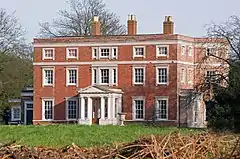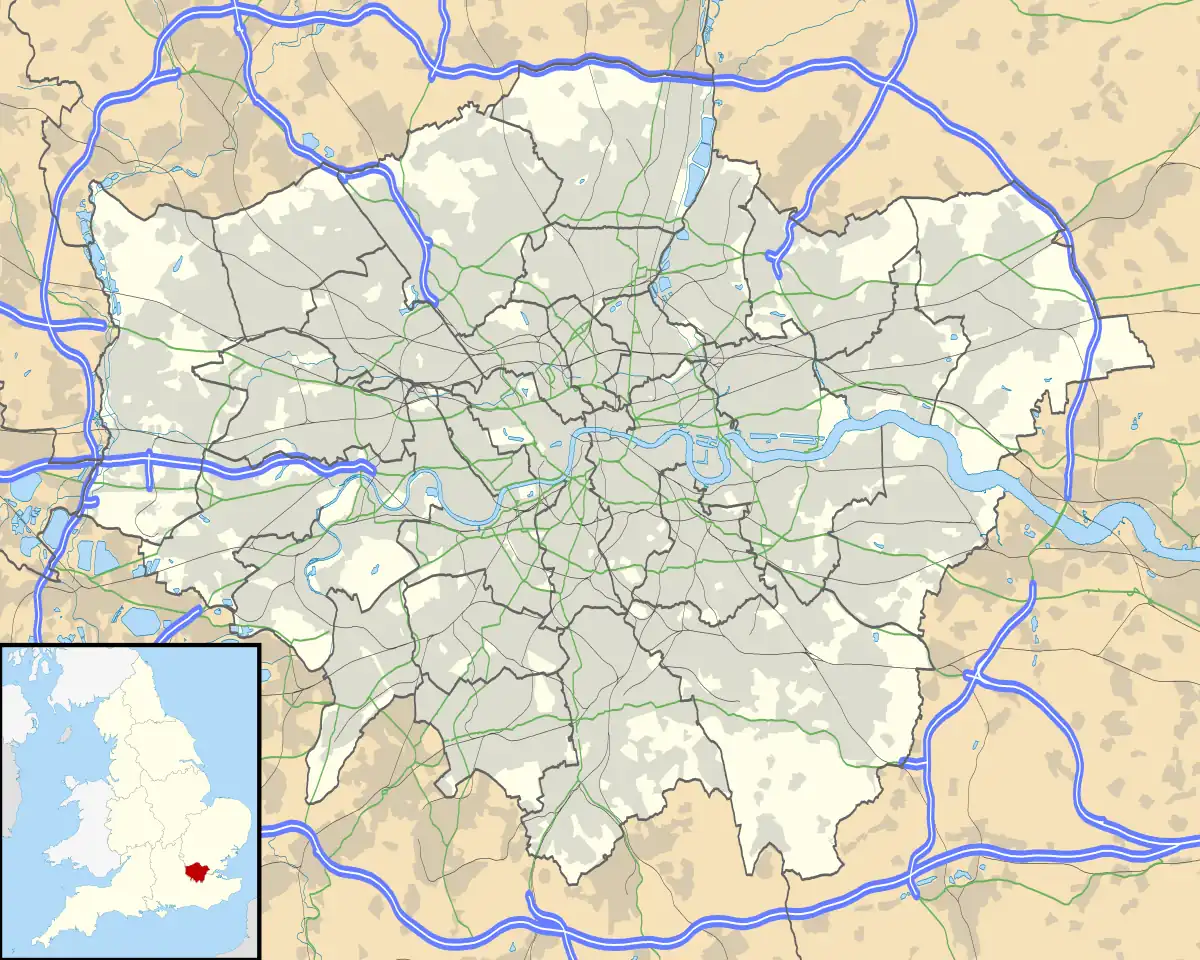| Kevington | |
|---|---|
 Kevington Hall | |
 Kevington Location within Greater London | |
| London borough | |
| Ceremonial county | Greater London |
| Region | |
| Country | England |
| Sovereign state | United Kingdom |
| Post town | ORPINGTON |
| Postcode district | BR5 |
| Police | Metropolitan |
| Fire | London |
| Ambulance | London |
| London Assembly | |
Kevington, sometimes spelt Kevingtown,[1] is a rural hamlet in South East London, England, within the London Borough of Bromley. It is located north east of Orpington and south west of Swanley and is adjacent to the Greater London border with Kent, in the Metropolitan green belt.
History
Kevington was in the historic county of Kent until 1965 when Greater London was formed.
The name is thought to refer either to a 'place on a hillock', or else a Saxon-era landowner named Cyfa.[1] Some old maps show two distinct places here - Kevington and Kevingtown - however this distinction has since been lost.[1]
Lord Simon de Manning, a former Lord of the Manor for Kevington, London, (which included Single Street, Luxted, Cudham, Downe, and Berry's Green), and grandson to Rudolf de Manning, (who married Elgida, aunt to King Harold 1, Harold Harefoot), of England); he was the royal Standard Bearer to King Richard the Lionheart. He carried the royal Standard to Jerusalem, in 1190, during the First Crusade.
In the Middle Ages the area formed part of Kevington manor and was in the hands of the Manning and Onslow (surname) families.[1] In the mid 1700s the Onslows sold part of their lands to the Dutch financial merchant Herman Behrens, who employed Sir Robert Taylor to build him Kevington Hall in 1769.[1] The Hall was used to billet Canadian troops during the Second World War and was later used as a primary school; it now functions as a conference and events space.[1] Oak View School (originally Shawcroft Special School) opened nearby in 1976 to cater for young people with special needs.[1] There was once a pub in the hamlet called the Kevington Arms, however this is now a farm building.[1]
Transport
Buses
- 477 to Orpington via St Mary Cray or to Dartford via Crockenhill, Swanley, Hextable & Wilmington. Mondays to Saturdays only. Operated by Arriva Kent Thameside.
Rail
The nearest National Rail station is St Mary Cray or Swanley.

